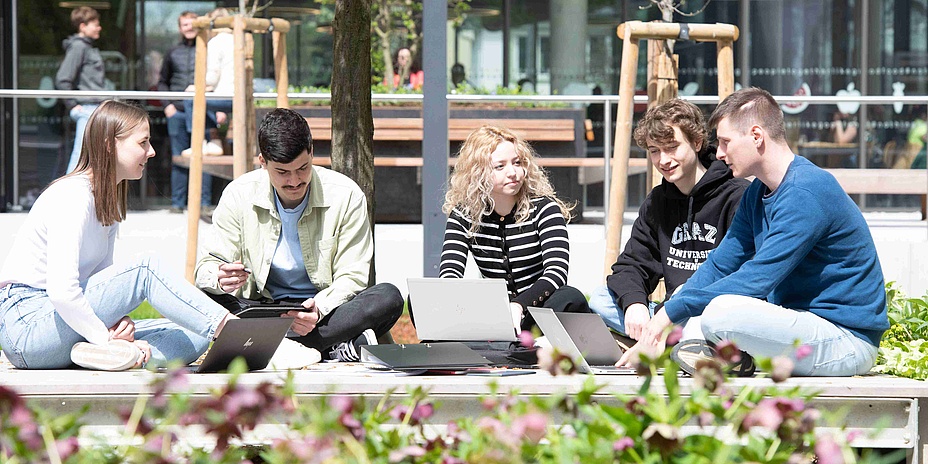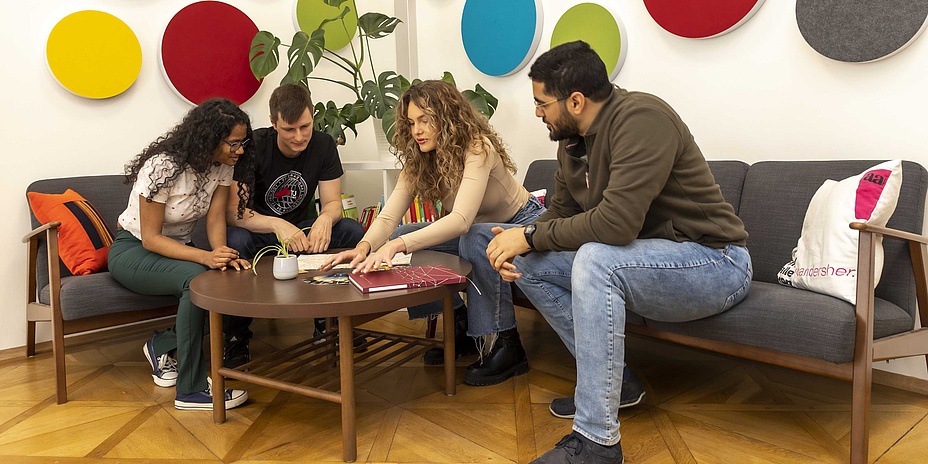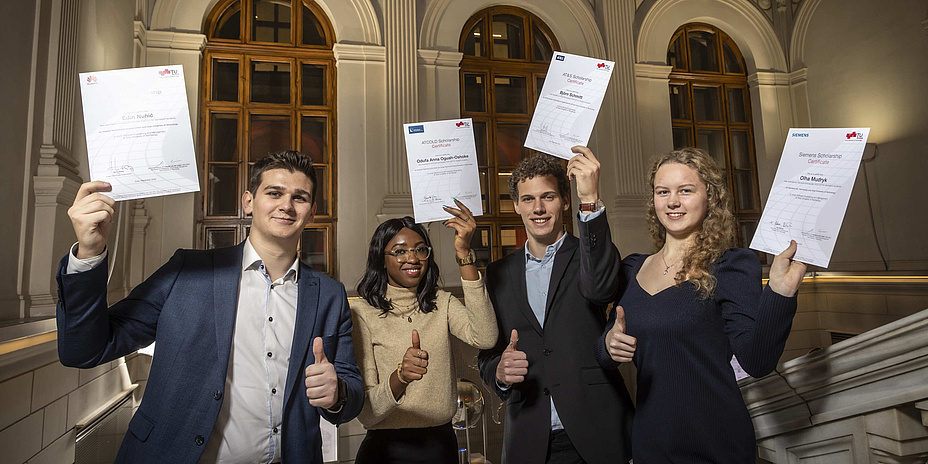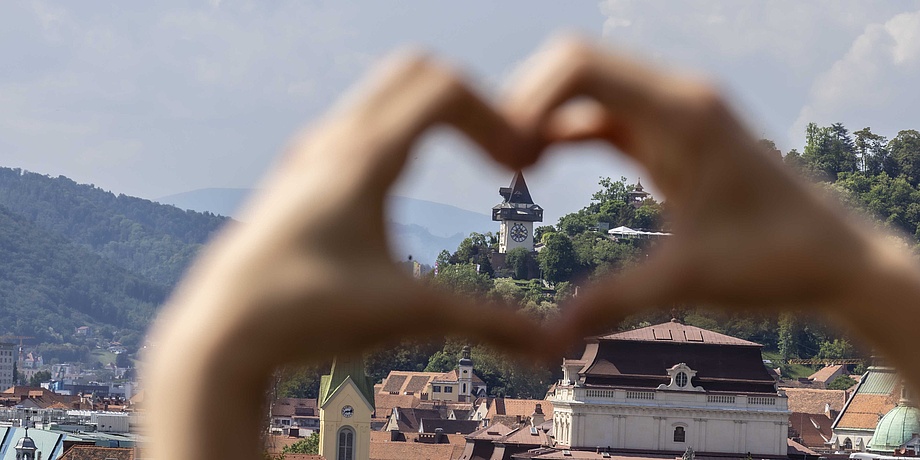In this blog article, we explore the compelling reasons why Graz stands out as a gateway to unparalleled educational experiences waiting to be explored. The value of Graz as a study destination for Slovenian students lies in a confluence of factors that collectively create an environment conducive to academic excellence and personal growth.
Graz as a place to study
As someone who came from Maribor to study architecture at Graz University of Technology (TU Graz) I found Graz to be the perfect location for me. I think it is the same for most people from Slovenia. For most Slovenes, the proximity of Graz as the city where we study to our home is a privilege. It is a big plus, because on the one hand we are not too far away from home, but at the same time far enough away from home to live an independent life in a new country and get a feel for life in the international student community. Going to study in another country is a big step for anyone, but being close to home makes it easier. Whenever you feel like you want to go home, you can. I even know some people who do not live in Graz, but who only come to Graz when they have classes. That is possible thanks to the good train connections. It takes about an hour from Maribor to Graz.
If you are interested in Graz as a place to study in I recommend reading Atena Ibrahimi’s blog post or one of the other blog posts my colleagues have written about Graz.
Social Networking

Being an international student in Graz gives you the opportunity to build a diverse network of friends, both from Austria and other countries. As Graz is a big city with many people from different backgrounds, the opportunities are almost endless.
If you live in a hall of residence you will meet students who have come to Graz on student mobility programmes such as Erasmus as well as degree seeking students from different countries. You can share your experiences with them and they can help you with many things.
Furthermore, as an international student you will not only meet people from other countries, but you will also meet a lot of people from your own country – in my case Slovenia. At the moment there are about 165 students from Slovenia at TU Graz. That means that we can frequently speak Slovene, which makes us feel more at home.
If you have already gained admission to TU Graz, you can also sign up for the Welcome Center mailing list to receive further information on events and activities organised for international students.
How and where can you meet new people?
Living in Graz will in some way force you to go out of your comfort zone, which is a good thing – you will become more communicative and socially outgoing and these are good skills to have later in life. You will meet most people at university, at university events, in student organisations or if you live in a hall of residence – that is why I would recommend living in a hall – of course at parties there.
In her blog post “Networking and making friends as an international student in Graz”, my colleague Fjolla Hasani writes about networking as a student in Graz.

There are people to help you
I think it is a good thing to remember that if you have decided to study in Graz, especially at TU Graz, you are not alone. If there is something you do not know, we are here to help. By “we” I mean the International Student Ambassadors of TU Graz (of which I am one), the TU Graz Welcome Center or other people and institutions. Don’t be afraid to ask. One thing which I think is really great is that international students in the classes are very connected, they help each other and you know you can rely on them if you have any questions. Other international students make studying easier. Because they have all gone through similar stuff as you, like starting to live on your own, learning German and so on. They understand you more than other students.
If you consider studying at TU Graz, browse the website “International Students Overview” for more information and take a look at the FAQ for International Students.
Cultural similarities
Both Slovenia and Austria share cultural similarities, something which can help you adapt to the new environment more easily. Slovenians and Austrians see themselves as Central Europeans, and the historic imperial and royal architecture in the cities points to a common history. They are proud of their green countryside with mountains, lakes and lots of forests and they share culinary similarities such as good wines, delicious pastries such as strudel and a tradition of hospitality. Because of this, you will not feel that you have moved to a new country.
![]()
Requirements for EU members
Since Slovenian citizens have EU membership, documents are not a big issue, so you do not need to worry about them. But there are some requirements to consider when it comes to living in Austria.
If you would like to start as a degree seeking student at TU Graz and need any help with your stay in Austria even before arrival, contact the Welcome Center. Exchange students will receive information on any necessary administrative steps via email directly from their Exchange Coordinators.
Language
I know that a lot of the people are afraid of studying in Austria, because of the language – German. I also used to be one of them. But what better way to improve your German than to study in the place where people speak the language you want to improve. It is a challenge, but you will never succeed if you do not face challenges. So I would just say, just try it. Not only will your German get better, but also your other languages, for example English. When you are meeting new people from other countries, for instance in your hall, you will speak English a lot and you can also start learning their native language, if that is your wish.
My colleague Gergö Horváth wrote a Blog post about the peculiarities of Austrian German in which he also gives advice for those who do not speak German that well.
University system
Let’s start with university admissions. In Austria, school grades are not as important as they are in Slovenia. What counts for you as an international student is your knowledge of the language and the fact that you have completed secondary school. You may have to take an entrance exam for some of the study programmes, but secondary school does not have to be so stressful for you. If someone asked me how I would explain how universities work in Austria, I would say that you are your own boss. You can feel this by how and when you can take an exam.
In Austria, students do have an exam season, but it is not a must to do everything in the exam season – whereas in Slovenia you need to do every exam at that time because there are no alternative exam dates as in Austria. Here you can take an exam almost every month or every two months. And if an exam is not required for a particular course in the coming semester, you have time to take it in two, three or four semesters, for example. No one pressures you to do everything in one semester.
Another difference is that in Slovenia everything is organised in academic years, which is slightly different compared to Austria. Here there are also academic years, but they are divided into two semesters, which means that you do not have to apply for a whole year in university, but only for one semester, either the winter or for the summer semester. Some courses are only offered in the summer semester, others only in the winter semester. You need to do both of them, but maybe not in the same year. In Slovenia you need to do almost every exam in a specific year, because almost every subject is required to be completed for the next academic year, because of the ECTS credits. In Austria, as I mentioned above, if an exam is not required for a particular course in the coming semester, you can take more time.
On the website of TU Graz you can find a list of degree programmes that require an admission procedure. You can find out about general requirements, steps necessary for admission, needed documents and more in the FAQ for international students.
The cost of studying and living
For us Slovenian students, public universities in Austria are basically free, you just need to pay the tuition fee at the beginning of every semester that is about 25 euros, so this is similar to Slovenia. A tuition fee of 363,36 euros per semester only needs to be paid by degree students who have exceeded the standard duration of the degree programme including two additional semesters and by non-EU foreign nationals.
Also living in Graz is not so much more expensive than you might think; it is pretty similar to Slovenia. For example, if you move from Maribor to study in Ljubljana, it is pretty similar in price to moving from Maribor to study in Graz.

Scholarships
There are lots of different grants as well as scholarships offered by TU Graz to help you to help you finance your degree programme.
If you want to know more about living costs and scholarships, you can search the TU Graz Blog for the topic “Finance”. The TU Graz website “financial matters” gives you information about grants, scholarships and tuition fees.
My Advice
To sum it all up, if you have always wanted to study abroad, I think Graz is the best city you can choose. I do not want to lie; it can be hard in the beginning, but in the end it will be worth it. You will not regret it. Studying in Graz opens a lot of doors to the world as well as new possibilities; it teaches you independence and prepares you for your life after university at an academic and personal level. Everything has positive and negative sides. But in my opinion studying in Graz has more positives than negatives in the final analysis.






